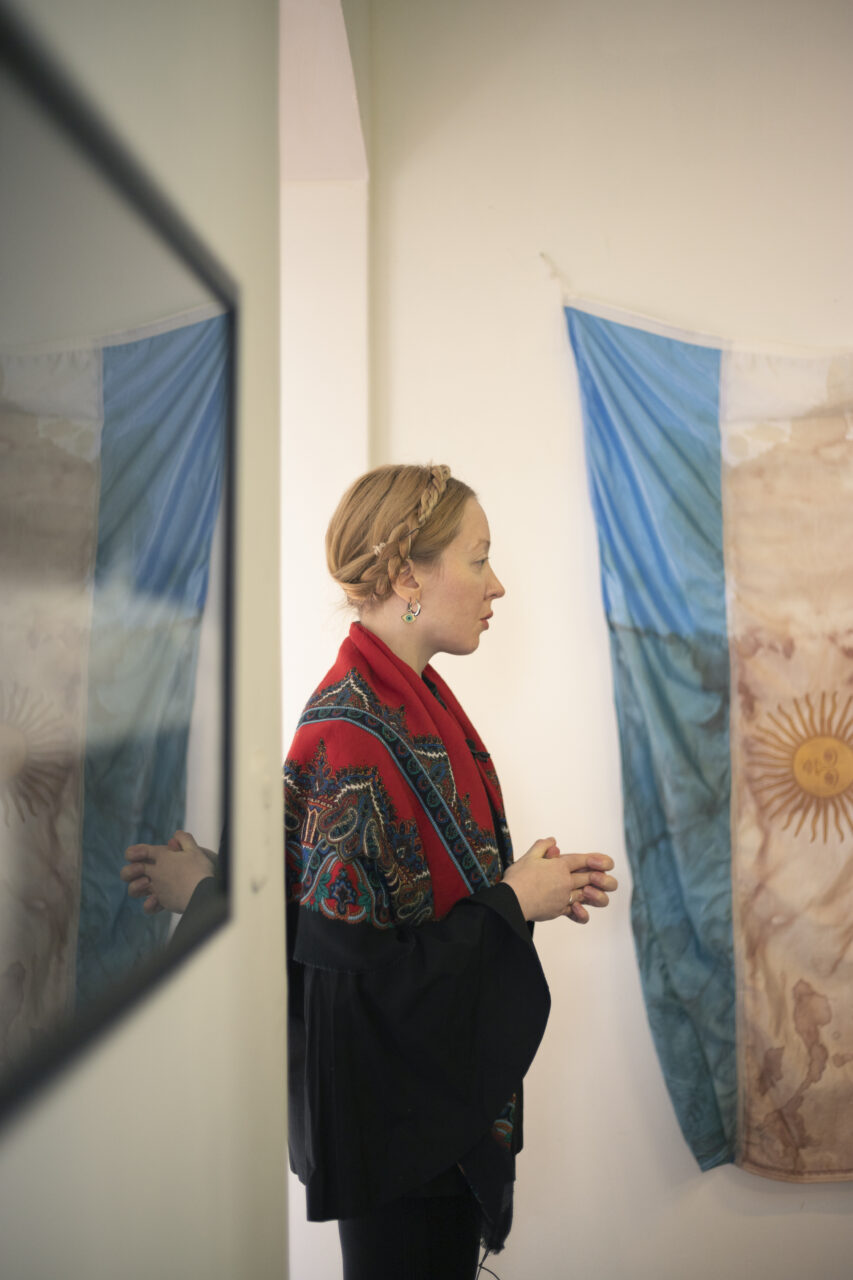BIO
The work of Argentinian performance artist Natacha Voliakovsky (she/they) reclaims the body as a site of resistance, transformation, and political agency. Engaging with sudaca-feminism, decolonial aesthetics, and radical autonomy, she pushes the limits of corporeality through surgical intervention, endurance, and ritualized action. Their body modifications are acts of somatic and physiological reparation, a response to inherited and lived trauma, reshaping the self beyond imposed narratives. Voliakovsky challenges systems of power, gender norms, and body colonialism using performance as both rupture and reclamation.
Voliakovsky’s performances have been presented internationally at the the Every Woman Biennial (London), Latin America Art Triennial, Center for Performance Research, Grace Exhibition Space (New York), Deformes, Performance International Triennial (Chile), the National Museum of Colombia, the Contemporary Art Museum of Colombia (Bogotá), the International Forum of Performance Art of Greece, C32 Performing Art Work Space (Italy), The Momentary Museum (Arkansas), Usina del Arte, Casa de Victoria Ocampo and the Contemporary Art Museum of Bahía Blanca (Argentina) among others, and their work is a part of several private collections.
Voliakovsky has received the Su-Casa LMCC Lower Manhattan Cultural Council Art Grant three years running and has been awarded additional honors including the UNNE Award (Corrientes University Cultural Center & Northeast Cultural Center, Argentina, 2019) and the National Fund for the Arts (Buenos Aires, Argentina, 2019) among others. They have participated in residencies such as Sur Polar Antarctic Residency (Argentina), Take a Breath Residency at The Action Lab (New York), Ruina Residency (Oaxaca, Mexico), Überbau Haus (São Paulo, Brazil), and Alberdi Artist Residency (Córdoba, Argentina), among others.
Voliakovsky has presented conferences and lectures at Harvard University (Boston), Herbert Berghof-HB Studios (New York), the Consulate of Argentina in New York, the National University of Bogotá (Colombia), Centro Cultural Recoleta, Palermo University (Argentina), Facultad de Artes y Diseño (Ciudad de México), and the Centros Culturales de la Cooperación Española of Mexico, Chile, Argentina, and Guatemala.
Natacha is the founder and director of Argentina Performance Art since 2018, a platform dedicated to promoting and researching performance art in Argentina. Natacha currently lives and works between Buenos Aires and New York.
STATEMENT
Natacha Voliakovsky’s (they/she) practice exists at the intersection of queer-rights, sudaca-feminism, and the reclamation of the body as a space of political agency and autonomy. Rooted in an exploration of corporeality, their work interrogates the boundaries of body politics, trauma, and identity formation. Drawing from their own experience as a survivor of intergenerational trauma, physical abuse, and sexual violence, Voliakovsky’s art embodies the process of somatic and physiological reparation, a struggle to rebuild and reappropriate the body beyond imposed narratives.
Engaging with concepts of body fragmentation and the materiality of flesh, their performances and installations examine how bodily transformations, whether through surgical interventions or ritualistic practices, assert autonomy over a fragmented self. Their work challenges traditional notions of identity, focusing on the autonomy of the body and the reconfiguration of social and cultural norms. By invoking decolonial aesthetics and radical sovereignty, Voliakovsky reimagines the possibilities of selfhood, where the body becomes a site of resistance, healing, and reclamation. As a High-Testosterone woman, their work reasserts the right to shape and inhabit one’s body, confronting histories of violence and reasserting the agency to transform and reclaim personal and collective identity.
DOWNLOAD BIO & STATEMENT
English and Spanish
 © Natacha Voliakovsky
© Natacha Voliakovsky